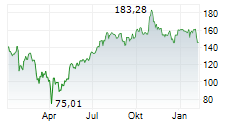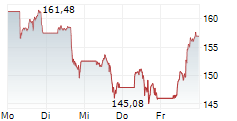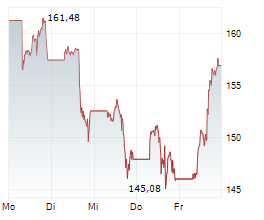SANTA CLARA (dpa-AFX) - The Trump administration is quietly weighing whether to let Nvidia sell its top-notch H200 AI chips to Chinese firms, which would represent a big shift in U.S. tech export policies.
As reported by Reuters, the Commerce Department is looking into possibly loosening restrictions that currently prevent the sale of high-end AI chips to China. Still, officials made it clear that no decisions have been made yet and things could change.
A White House representative wouldn't get into details but mentioned that the administration is focused on keeping America's tech edge and ensuring national security.
The H200 chip is among Nvidia's most powerful, featuring more high bandwidth memory than the previous H100, and it's thought to be about twice as powerful as the H20 chip, which is the most advanced processor Nvidia can sell in China right now.
Nvidia, which has seen its market share in China plummet due to export restrictions, claims that the current rules are blocking it from competing in a market valued at around $50 billion today, potentially hitting $200 billion by 2030. If U.S. policy changes, it would be a major win for CEO Jensen Huang, who's been lobbying hard for fewer restrictions.
These discussions come just weeks after President Trump and Chinese leader Xi Jinping reached a trade and technology truce in Busan, hinting at a possible thawing in Washington's stance toward Beijing.
The news about this potential policy shift has shaken up Asian markets, leading to some wild trading for Chinese chipmakers. Cambricon stocks dipped initially but bounced back to close higher, while Hua Hong Semiconductor and SMIC faced significant losses earlier in the day before recovering some ground.
Analysts suggest that Nvidia's return with the powerful H200 could lessen demand for homegrown chips, even with China heavily investing in its own semiconductor industry.
In Washington, though, the idea is already facing criticism from lawmakers who worry that selling advanced chips to China could bolster its military and strategic power.
A bipartisan group in the Senate is working on legislation to compel the Commerce Department to deny licenses for all currently restricted chip exports, effectively blocking any policy changes.
This debate highlights the ongoing tension between national security concerns and the push to ease relations with China.
In the meantime, the U.S. is deepening chip partnerships elsewhere in Asia, including a plan to provide South Korea with over 260,000 Nvidia AI chips linked to a $10 billion initiative aimed at enhancing the country's AI infrastructure.
Copyright(c) 2025 RTTNews.com. All Rights Reserved
Copyright RTT News/dpa-AFX
© 2025 AFX News




